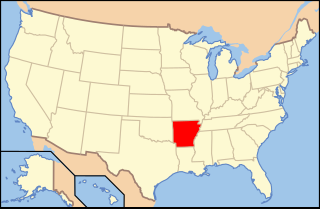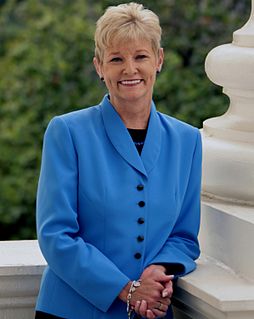In the United States, habitual offender laws were first implemented on March 7, 1994 and are part of the United States Justice Department's Anti-Violence Strategy. These laws require a person guilty of committing both a severe violent felony and two other previous convictions to serve a mandatory life sentence in prison. The purpose of the laws is to drastically increase the punishment of those convicted of more than two serious crimes.
Same-sex marriage is legal in the U.S. state of California, and first became so on June 16, 2008, when the state began issuing marriage licenses to same-sex couples as the result of the Supreme Court of California ruling in In re Marriage Cases, which found that barring same-sex couples from marriage violated the state's Constitution. The issuance of those licenses was halted during the period of November 5, 2008 through June 27, 2013 due to the passage of Proposition 8—a state constitutional amendment barring same-sex marriages. The granting of same-sex marriages recommenced following the United States Supreme Court decision in Hollingsworth v. Perry, which restored the effect of a federal district court ruling that overturned Proposition 8 as unconstitutional.
A sex offender is a person who has committed a sex crime. What constitutes a sex crime differs by culture and legal jurisdiction. The majority of convicted sex offenders have convictions for crimes of a sexual nature; however, some sex offenders have simply violated a law contained in a sexual category. Some of the crimes which usually result in a mandatory sex-offender classification are: a second prostitution conviction, sending or receiving obscene content in the form of SMS text messages (sexting), and relationship between young adults and teenagers resulting in corruption of a minor. If any sexual contact was made by the adult to the minor, then child molestation has occurred. Other serious offenses are sexual assault, statutory rape, bestiality, child sexual abuse, female genital mutilation, incest, rape, and sexual imposition.

California Proposition 21, known also as Prop 21, was a proposition proposed and passed in 2000 that increased a variety of criminal penalties for crimes committed by youth and incorporated many youth offenders into the adult criminal justice system. Major provisions of the proposition, as summarized by Attorney General of California are:

Jessica's Law is the informal name given to a 2005 Florida law, as well as laws in several other states, designed to protect potential victims and reduce a sexual offender's ability to re-offend. A version of Jessica's Law, known as the Jessica Lunsford Act, was introduced at the federal level in 2005 but was never enacted into law by Congress.

The California state elections, 2006 took place on November 7, 2006. Necessary primary elections were held on June 6. Among the elections that took place were all the seats of the California's State Assembly, 20 seats of the State Senate, seven constitutional officers, and all the seats of the Board of Equalization. Votes on retention of two Supreme Court justices and various Courts of Appeal judges were also held. Five propositions were also up for approval.

California Proposition 5, or the Nonviolent Offender Rehabilitation Act was an initiated state statute that appeared as a ballot measure on the November 2008 ballot in California. It was disapproved by voters on November 4 of that year.
A sex offender registry is a system in various countries designed to allow government authorities to keep track of the activities of sex offenders, including those who have completed their criminal sentences. In some jurisdictions, where sex offender registration can, registration is accompanied by residential address notification requirements. In many jurisdictions, registered sex offenders are subject to additional restrictions, including on housing. Those on parole or probation may be subject to restrictions that do not apply to other parolees or probationers. Sometimes, these include restrictions on being in the presence of underage persons, living in proximity to a school or day care center, owning toys or items targeted towards children, or using the Internet. Sex offender registries exist in many English-speaking countries, including Australia, Canada, New Zealand, the United States, Trinidad and Tobago, Jamaica, South Africa, the United Kingdom, Israel and the Republic of Ireland. The United States is the only country with a registry that is publicly accessible; all other countries in the English-speaking world have sex offender registries only accessible by law enforcement.
Marsy's Law, the California Victims' Bill of Rights Act of 2008, enacted by voters as Proposition 33 through the initiative process in the November 2008 general election, is an Amendment to the state's constitution and certain penal code sections. The act protects and expands the legal rights of victims of crime to include 17 rights in the judicial process, including the right to legal standing, protection from the defendant, notification of all court proceedings, and restitution, as well as granting parole boards far greater powers to deny inmates parole. Passage of this law in California has led to the passage of similar laws in Florida, Georgia, Illinois, Kentucky, Nevada, North Carolina, Oklahoma, and Ohio, and efforts to pass similar laws in Hawaii, Iowa, Montana, Idaho, and South Dakota. In November 2017, Marsy's Law was found to be unconstitutional and void in its entirety by the Supreme Court of Montana for violating that State's procedure for amending the Montana Constitution.

The California state elections was held on Election Day, November 6, 2012. On the ballot were eleven propositions, various parties' nominees for the United States presidency, the Class I Senator to the United States Senate, all of California's seats to the House of Representatives, all of the seats of the State Assembly, and all odd-numbered seats of the State Senate.

Lesbian, gay, bisexual, and transgender (LGBT) persons in the U.S. state of Arkansas may face some legal challenges not experienced by non-LGBT residents. Same-sex sexual activity is legal in Arkansas. Same-sex marriage in Arkansas became briefly legal through a court ruling on May 9, 2014, subject to court stays and appeals. In June 2015, the U.S. Supreme Court ruled in Obergefell v. Hodges that laws banning same-sex marriage are unconstitutional, legalizing same-sex marriage in the United States nationwide including in Arkansas. Discrimination on the basis of sexual orientation and gender identity is not banned statewide in Arkansas.

Proposition 47, also known by its ballot title Criminal Sentences. Misdemeanor Penalties. Initiative Statute, was a referendum passed by voters in the state of California on November 4, 2014. The measure was also referred to by its supporters as the Safe Neighborhoods and Schools Act. It recategorized some nonviolent offenses as misdemeanors, rather than felonies, as they had previously been categorized.

The National Association for Rational Sexual Offense Laws (NARSOL) is a national civil rights and justice reform organization headquartered in Raleigh, North Carolina with operations based in Albuquerque, New Mexico and with affiliated organizations, advocates, and contacts in the vast majority of states. NARSOL and its affiliates are part of the growing movement to reform sex offender laws in the United States. NARSOL asserts that while sex offender registries in the United States were originally well-intentioned and for the most heinous and dangerous sex offenders only, their reach has exponentially widened to include petty offenses such as teen sexting and consensual relations between young people. NARSOL has generated media attention by arranging national conferences in multiple cities including Albuquerque, Los Angeles Dallas, and Atlanta, and by being involved in numerous lawsuits.

Sex offender registries in the United States exist at both the federal and state levels. Registries contain information about persons convicted of sexual offenses for law enforcement and public notification purposes. All 50 states and the District of Columbia maintain sex offender registries that are open to the public via websites, although information on some offenders is visible to law enforcement only. According to NCMEC, as of 2016 there were 859,500 registered sex offenders in United States.

Constitutionality of sex offender registries in the United States have been challenged on a number of constitutional and other bases, generating substantial amount of case law. The Supreme Court of the United States has upheld sex offender registration laws each of the two times such laws have been examined by them. Those challenging the sex offender registration and related restriction statutes have claimed violations of ex post facto, due process, cruel and unusual punishment, equal protection and search and seizure. A study published in fall 2015 found that statistics cited in two U.S. Supreme Court decisions that are often cited in decisions upholding the constitutionality of sex offender policies are unfounded. Several challenges to some parts of state level sex offender laws have been honored after hearing at the state level.

The movement to reform sex offender laws in the United States describes the efforts of individuals and organizations to change state laws requiring Sex offender registries in the United States. Efforts fall into two main categories, advocacy for reform of statutory rape laws that may require a teenager to register as a sex offender for consensual sexual acts involving a younger teen, and broader efforts to modify sex offender registration laws based upon their sometimes dramatic impact on a convicted sex offender and belief that they provide little benefit for public safety.

Alliance for Constitutional Sex Offense Laws (ACSOL) is a civil rights, legal reform, and support organization, with offices in Los Angeles and Sacramento, that is dedicated to protecting the Constitution by restoring the civil rights of registrants and their families. ACSOL was formerly known as California Reform Sex Offender Laws.

Proposition 57 was a initiated California ballot proposition, approved on the November 8, 2016 ballot. The Proposition allows parole consideration for nonviolent felons, changes policies on juvenile prosecution, and authorizes sentence credits for rehabilitation, good behavior, and education.
















